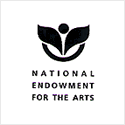ARTIST PROFILE
Pieter Wispelwey and Dejan Lazić
SAINT PAUL SUNDAY APPEARANCES
LINKS AND RESOURCES
BIOGRAPHY
Pieter Wispelwey
Pieter was born in Haarlem in the Netherlands in 1962 and grew up with his two younger brothers in Santpoort, where his parents still live. At the age of 19 he moved to Amsterdam and has remained in the same 17th century house on the Noordermarkt ever since. Pieter's diverse musical personality is rooted in the training he received-firstly from regular exposure from a very early age to his father's amateur string quartet when they rehearsed at the Wispelwey home, to lessons with Dicky Boeke and Anner Bylsma in Amsterdam followed by studies with Paul Katz in the USA and William Pleeth in the UK. It was also Dicky Boeke who encouraged him to listen to as much music as possible but particularly sowed the seeds for his love of Renaissance music (Italian and English madrigalists!) and German Lied. These genres, particularly the performances of Dietrich Fischer Diskau, have been a constant source of inspiration for Pieter. In 1990 his first recording with Channel Classics, The Bach Cello Suites, was released to great acclaim and in 1992 he was the first cellist ever to receive the Netherlands Music Prize, which is endowed upon the most promising young musician in the Netherlands; thus his path was secured to the busy and varied career he has today.
Pieter has always been at home on the modern cello with metal and/or gut strings as he is on the baroque 4 string and 5 string cello. Therefore he covers a repertoire from JS Bach to Elliott Carter drawing on a palett of sounds and colours available from his range of instruments, string set-ups and bows. Having grown up in an age and country where hearing period instruments was very much the norm for concert-goers, Pieter naturally developed his conviction that, in the right conditions, much 18th and 19th century music sounds far better on gut strings than on metal. However he is not a purist in the sense that if conditions are less than ideal (no fortepiano, too big a hall, too hot, too humid, too dry acoustically etc.) then he is more than happy to pick up his modern cello with metal strings (which therefor is quite often the case).
Recitals have always played a major part in Pieter's concert diary. As a recitalist with piano, he has all the main repertoire at his disposal which is always ready for performance, often at very short notice. He is not, and has never been, the type of soloist who tours the world with one or two recital programmes and a couple of concertos per season. On the contrary, a typical week in Pieter's life (if one can be said to exist) could well include the Bach suites, with perhaps 2 different recital programmes, a couple of concerto appearances with a student masterclass thrown in for good measure! He has appeared as recitalist all over the world including the Concertgebouw (Amsterdam), Wigmore Hall (London), Chatelet (Paris), Teatro Colon (Buenos Aires) and Sydney Opera House. Future exciting engagements include Bach and Britten suites at the Lincoln Centre, New York and a return visit to the Edinburgh Festival.
Pieter has appeared with a variety of orchestras and ensembles both with and without conductors. Notable projects without conductors have been the touring and recording of the Schumann and Shostakovich cello concertos with the Australian Chamber Orchestra. This orchestra has, without doubt, provided for Pieter the happiest and most satisfying musical collaborations of his career to date, not least due to the genius of leader and musical director, Richard Tognetti. He has also appeared, with conductor, with the Rotterdam Philharmonic Orchestra, the BBC symphony orchestra, the Russian National Symphony, Camerata Academica Salzburg, Mahler Chamber Orchestra and the Deutsche Kammerphilharmonie Bremen to name but a few and has recorded with the Netherlands Philharmonic Orchestra and the Netherlands Radio Philharmonic. Future engagements with orchestras include the Halle, the Japan Philharmonic, the Leipzig Gewandhaus Orchestra under Herbert Blomstedt and the Orchestra of the Age of Enlightenment under Marc Minkowsky.
Pieter considers himself extremely lucky that, despite the demise of the classical recording industry, he is in a position, thanks to the support of his record label Channel Classics, to be able to record his own choice of repertoire with his own choice of artists and orchestras. This freedom has resulted in the conception of CD's with unusually imaginative repertoire such as Schubert violin sonatinas, Chopin Waltzes, Mazurkas and Preludes and the Bach Gamba sonatas with his own personal intrumentations. All titles that major labels would undoubtedly have shied away from. The latter would also be true for his 2nd Bach suites recording, the decision to record Schumann and Shostakovich cello concerti without conductor and his recent plan to re-record the Brahms and Beethoven sonatas. But maybe what he appreciates most about Channel Classics is the fact that he is allowed complete hands-on control over the producing and, more importantly, the editing and post production processes, his involvement even stretching to writing texts for the CD booklets.
During the last decade he has been regarded as one of the leading cello soloists. Interestingly enough, when in his twenties Pieter was both considered an enfant terrible and stigmatized as a baroque cellist by some. His image as enfant terrible might have been caused by the fact that Pieter never opted for the mainstream career approach, including "useful" teachers and competitions. He chose to stay loyal to the small label Channel Classics and couldn't help being quite outspoken in interviews. In his first two years as recording artist, when he did the complete Bach and Beethoven on period instruments, he made sure, to avoid the development of the wrong image, that he also recorded the complete Britten suites and the Kodaly sonata. Although the Britten got a great reception it was to no immediate avail. At first he used to regret his baroque stigma, but later he had to admit that the Bach suites had sent him all over the world.
Crucial for the broadening of his reputation was that, from the mid-nineties onwards, Channel Classics was able to organise the recording of the main concerto repertoire. For the near future everything is set to record remaining "biggies", like the 2nd Shostakovich, the Prokofiev, Dutilleux, Britten and Walton.
Dejan Lazić
Dejan Lazic Pianist Dejan Lazic was born in Zagreb, Croatia, and grew up in Salzburg where he studied at the Mozarteum. He is quickly establishing a reputation worldwide as "a brilliant pianist and a gifted musician full of ideas and able to project them persuasively" (Gramophone). The New York Times recently hailed his performance as "full of poetic, shapely phrasing and vivid dynamic effects that made this music sound fresh, spontaneous and impassioned". As recitalist and soloist with orchestra, he has appeared at major venues in Berlin, Paris, London, Amsterdam, Vienna, New York, Chicago, Tokyo, Buenos Aires and Sydney, and at the Schleswig-Holstein, Edinburgh, Verbier, Huntington/Australia, Lisbon, Prague and Menuhin/Gstaad
Recent and upcoming orchestral engagements include the Orchestre National d'Ile de France, Munich and Basel Chamber Orchestras, Camerata Salzburg, Australian Chamber Orchestra, Northern Sinfonia, Klassische Philharmonie Bonn, Flanders Symphony, Netherlands Chamber Orchestra, Orchestre d'Auvergne, Slovenian Philharmonic, as well as St. Petersburg Hermitage and Janacek Philharmonic. He has a growing following in the Far East and increasingly tours China, Japan and Korea.
Alongside his solo career, Dejan Lazic is also a passionate chamber musician and shares a long-standing partnership with cellist Pieter Wispelwey. He also collaborates with Vadim Repin, Benjamin Schmid, Karl Leister, Gordan Nikolic, Thomas Zehetmair and Richard Tognetti.
Dejan records exclusively for Channel Classics, where his latest recording of Schubert's sonata D960 and his earlier Beethoven Piano Concerto No. 2 have earned rave reviews. With cellist Pieter Wispelwey he has recently released a recording of the complete works for Cello and Piano by Beethoven, as well as the duo sonatas by Shostakovich, Prokofiev and Britten. His next release will feature sonatas by Scarlatti and works by Bartok.








